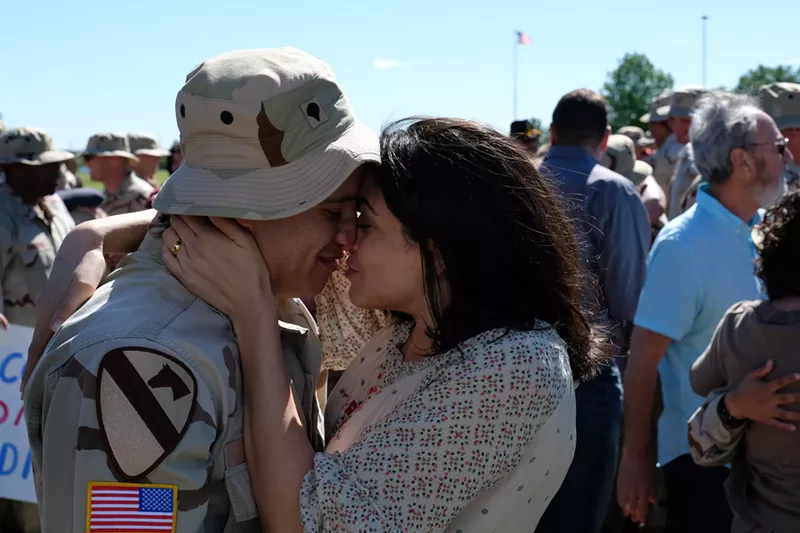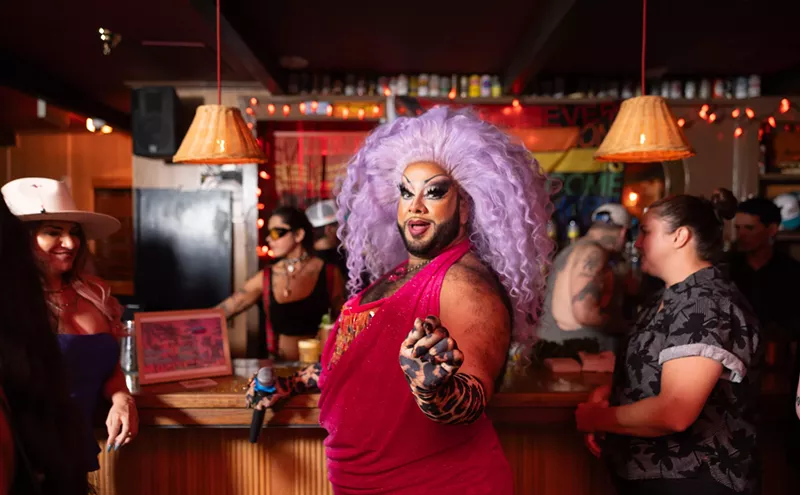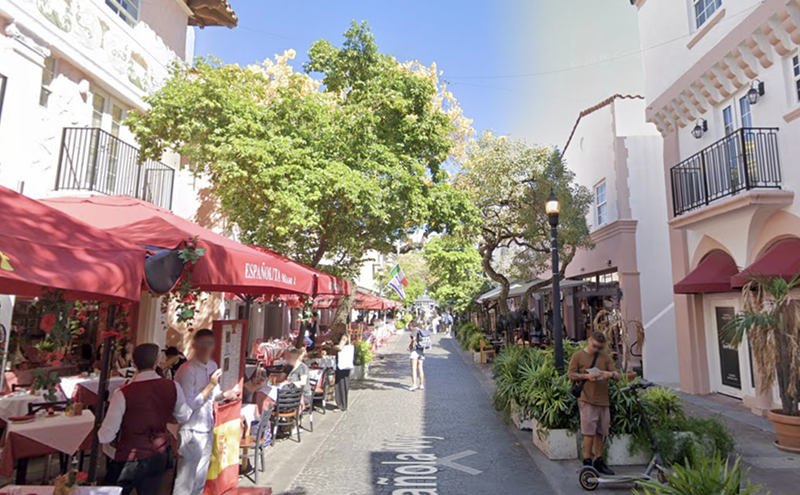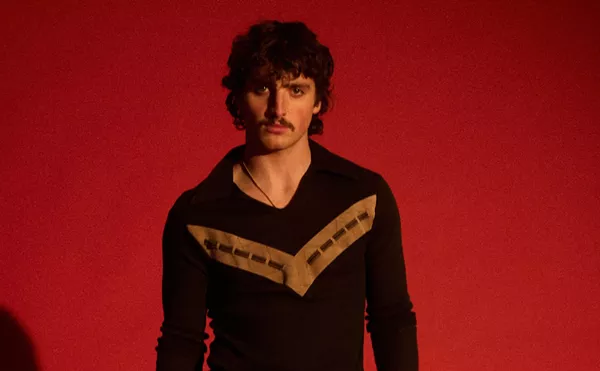Even if you're the kind of person who strays from "war movies" or "military shows," it's time you watched The Long Road Home. Based on the best-selling book by Martha Raddatz, National Geographic's newest miniseries premiered last month and chronicles the events of April 4, 2004, when eight soldiers from the First Cavalry Division from Fort Hood, Texas, tasked with reconstruction, were killed in a two-day siege in Sadr City, Baghdad, during the Iraq War. Jorge Diaz, who plays Army Specialist Israel Garza, seeks to give the "military show" a new face by doing what he does best: bringing joy to even the most painful Latino stories.
The 34-year-old Mexican-American actor, who was born and raised in Los Angeles, grew up far from the military families of Fort Hood, one of the largest military bases in the world. He admits that although his world growing up looked very different from Garza's, he found inspiration in the similarities he shared with his character.
“[Garza] was a big jokester, so naturally I gravitated towards the sense of humor that’s depicted in the writing," Diaz tells New Times. (You might remember him as Rogelio's plucky intern on Miami favorite Jane the Virgin or goofball Paulie on East Los High.) "But after meeting Lupita, Israel’s wife, and hearing stories from her, laughing with her, and crying with her, that was such a gift, because I felt his essence," Diaz explains. "That’s all I really wanted to do as an actor — open my heart, try to do the best job possible, and show this [story] as authentically as possible.”
According to Lupita Garza, her husband made a joke out of everything. He was only 25 when he was sent on a peacekeeping mission to Sadr City, having never shot or been shot at outside of his initial training at Fort Hood. He had worked at Sonic before he enlisted and wanted to make his wife and young children proud.
"Everyone has a different story of why they enlist," Diaz says he learned, admitting that even his own perception of military families changed. "That’s what I hope people take from this story and that they’re able to connect on a profoundly human level to realize this could be your brother, this could be your mom, your father, your son."
To prepare for the role, Diaz and the cast spent three weeks in boot camp, where they learned to carry themselves like soldiers and spent time with military advisers Eric Bourquin and Aaron Fowler, who are veterans of the 2004 mission, as well as countless members from the community who lived in Fort Hood at the time and who now play extras in the series.
Although this story is a tragic one, Diaz's incredible empathy as an actor allows him to bring joy to Garza's memory. Like Garza, Diaz grew up in a working-class Mexican-American family and was the first member of his family to graduate from high school and college.
As a kid, Diaz persuaded his realist mother to enroll him in acting classes and deepened his love of the craft in a quirky medium. "I became obsessed with going to tapings of TV shows,” Diaz laughs. “Like, if someone asked me, 'Do you want to go to Disneyland, or do you want to go to a taping of a sitcom?' I’d be like, 'No, no, let’s go to the taping!'”
He smiles while recalling attending a taping for — of all shows — Married With Children, accompanied by his confused mother. He remembers that taping as the first time he imagined himself on the other side of the camera as an actor. At the age of 15, he booked his first job on the ¿Qué Pasa, U.S.A.?-esque Spanish-language sitcom Solo en America and continued to book countless commercials. But remembering the sacrifices his parents made for their working-class family, Diaz says he never thought he'd pursue acting as a career and saw it more as a hobby. “I was just doing it for fun, and I think maybe that’s why I started booking things," he reflects, "because I had such a lighthearted approach to it.”
Today Diaz's work is characterized by overwhelming joy and his presence in groundbreaking casts, such as Paranormal Activity: The Marked Ones, with an all-Latino lead cast, and East Los High, the first English-language TV show with an all-Latino cast. “I’m just so grateful to be part of it," says Diaz of the recent explosion of Latino-centric American media. "It’s always in retrospect that you realize you may be opening a door for another young Latino artist coming up, because the success of one project literally green-lights other projects as well," he explains, citing Jane the Virgin as an example of this catalyst.
His voice work as Gabe in Disney's Elena of Avalor, whose namesake is Disney's first Latina princess, and Ojo in Amazon's Lost in Oz is funny, sweet, and compassionately written, a refreshing departure from the traditional Hollywood Latino typecasts of the maid, the gang member, or the drug lord.
"When I was younger and I was auditioning for certain roles, I did feel boxed in because there were so many roles for all those crime shows, for either the young gang member in that show... or the young immigrant that didn’t speak English," says Diaz, acknowledging a need for more nuanced portrayals of those characters. He even considered changing his name to book less stereotypical roles. He found that by not dimming his light, he was able to reach an audience hungry for the same representation. "We’re telling American stories and shining a light that says, Hey, we can do this, we can be the leads of shows, but also shining a light on why it hasn’t been done before.”
On the set of The Long Road Home, Diaz felt anxious about honoring Garza's memory. “There was such a great responsibility, because the families were there, these soldiers were there, and we were telling something so real to them, and they’re still carrying a lot of the burdens from that experience," he reflects. Now, he says, the sense of healing that the show brought Lupita Garza, her children, and families like theirs is his most rewarding work.
In a political climate increasingly hostile toward Latinos, shows such as The Long Road Home and Elena of Avalor are examples of respect and nuance that combat the racist and xenophobic stereotypes that other Americans consume. For the 58 million Latinos living in the United States, these shows will help us heal too.
The series finale of The Long Road Home airs Tuesday, December 19, at 10 p.m. on National Geographic.

Audio By Carbonatix
[
{
"name": "GPT - Billboard - Slot Inline - Content - Labeled - No Desktop",
"component": "22004575",
"insertPoint": "2",
"requiredCountToDisplay": "2"
},{
"name": "STN Player - Float - Mobile Only ",
"component": "22595215",
"insertPoint": "2",
"requiredCountToDisplay": "2"
},{
"name": "Editor Picks",
"component": "17482312",
"insertPoint": "4",
"requiredCountToDisplay": "1"
},{
"name": "Inline Links",
"component": "18711090",
"insertPoint": "8th",
"startingPoint": 8,
"requiredCountToDisplay": "7",
"maxInsertions": 25
},{
"name": "GPT - 2x Rectangles Desktop, Tower on Mobile - Labeled",
"component": "23181625",
"insertPoint": "8th",
"startingPoint": 8,
"requiredCountToDisplay": "7",
"maxInsertions": 25
},{
"name": "Inline Links",
"component": "18711090",
"insertPoint": "8th",
"startingPoint": 12,
"requiredCountToDisplay": "11",
"maxInsertions": 25
},{
"name": "GPT - Leaderboard to Tower - Slot Auto-select - Labeled",
"component": "17720761",
"insertPoint": "8th",
"startingPoint": 12,
"requiredCountToDisplay": "11",
"maxInsertions": 25
}
]











